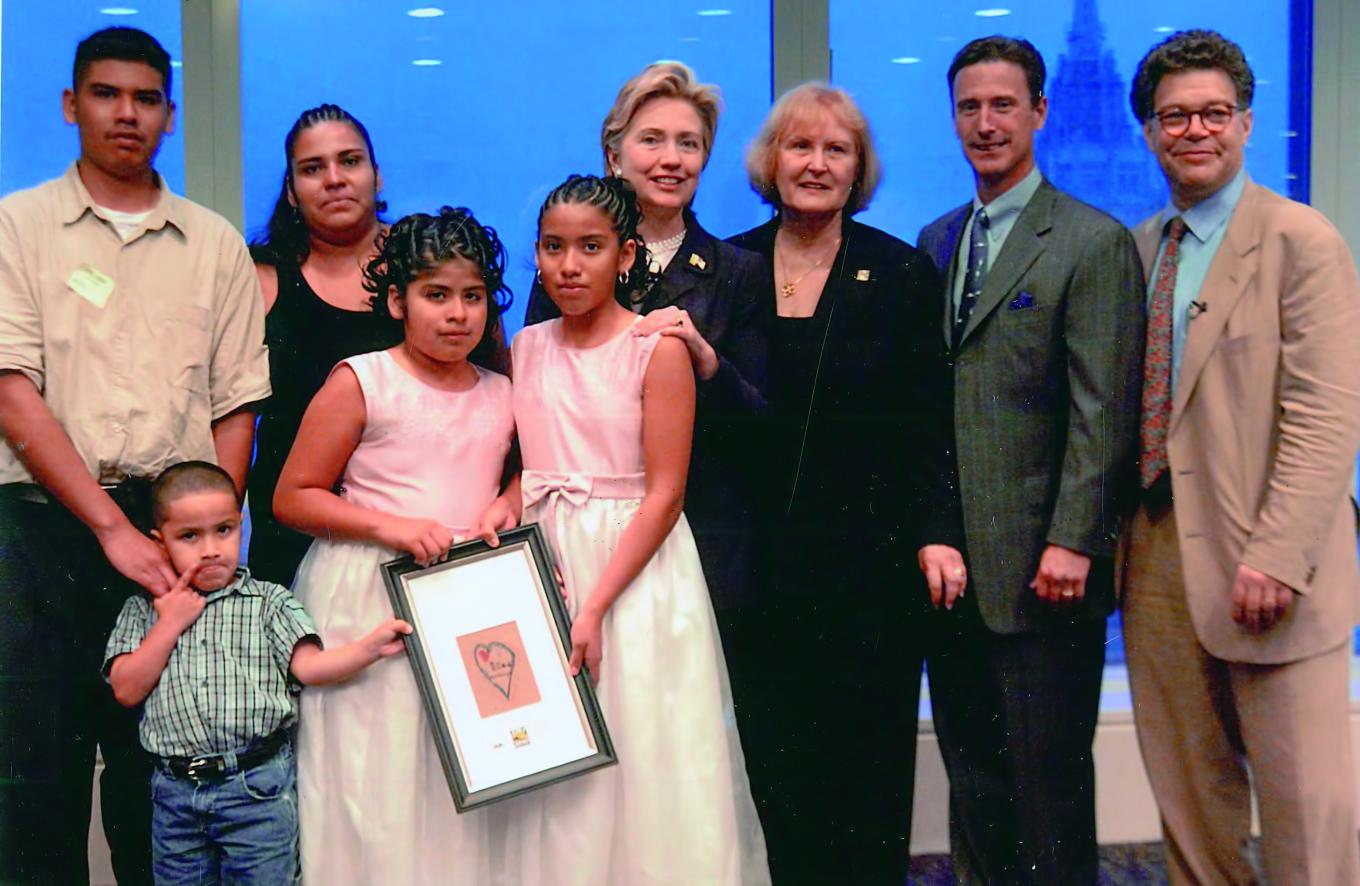Giving to CEHD
YOUR GIFT MATTERSCEHD's leadership in education, human development, and research depends upon the generosity of alumni and friends. When you invest in education, dividends go to everyone.
Your gifts fund scholarships, diversity initiatives, investment in faculty, and other areas that strengthen our academic mission while ensuring collaboration with community practitioners. Your support makes innovation possible while sustaining CEHD’s ongoing work to improve lives.
Our students benefit from a supportive and challenging environment with special opportunities such as research experiences, study abroad and internships. Our faculty are among the best in the world, conducting field-changing research and engaging all students in learning. Our graduates go on to be leaders and in their careers and in their communities – instilled with a commitment to improving lives for children and families.
Gifts of all amounts have an impact, and you can make a difference with your support.
In 2022-23, donors supported these priority areas:
$1.3M
to research
$3.7M
for student support
$200,000
for faculty and staff support
$750,000
in capital improvements
$2.2M
for programs
Impact of giving

Pauline Boss and Hillary Rodham Clinton are honored for their work with families suffering ambiguous loss after 9/11.

Noriko Gamblin, a former development officer at CEHD and now at the Carlson School of Management, was struck by how modest and accessible Pauline Boss was when they first met. “Huge theory, humble person,” she says.
Gamblin was intrigued by the steady stream of small contributions that were made for ambiguous loss research by family members of those lost in 9/11, mainly the Service Employees International Union (SEIU) workers whose bodies were never recovered. Boss’ work with the families of SEIU workers led to a fundraiser in New York City in which she and Hillary Rodham Clinton were honored for their work on behalf of the surviving families. Boss received a discretionary gift, which she contributed to the U of M Foundation to fund research in ambiguous loss.
“It was this fund that I, as a development officer, along with other benefactors and development colleagues such as Susan Holter and Brittany Barber, worked to grow into a faculty fellowship that would bear her name in order to carry on the scholarly work of ambiguous loss,” Gamblin says. Gamblin also feels a more personal connection to Boss’ theory. “Like many people who have straddled two countries and societies—in my case, Japan and the U.S.—I have known and felt deeply the losses that come from having a hybrid national identity that is both and neither,” she says. “It was not until I encountered Pauline’s work that I understood that I was not alone, that it is often the condition of immigrants everywhere, and has been for perhaps all of human history. This understanding was the foundation on which I have tried to reconstruct my existence, and it has been more helpful than I can say.”
As a development officer at the U, Gamblin has encountered innumerable opportunities to give meaningfully. “When I made a professional commitment to try to grow Pauline’s fund into a faculty fellowship, I matched it with a personal commitment to contribute to the utmost of my ability, through near-term gifts and my estate plan,” she says. “I have seen up close what philanthropy can do. My dream is that this fund will grow into the Pauline Boss Professorship in Ambiguous Loss, and from there into a chair, as befits her legacy, both at the University of Minnesota and in the greater world.”
Support the Dr. Pauline Boss Faculty Fellowship in Ambiguous Loss.
Giving to departments and centers
WE BELIEVE THAT EDUCATION PLUS HUMAN DEVELOPMENT EQUALS VIRTUALLY LIMITLESS POSSIBILITY.CEHD departments and programs have priorities specific to their student body and research areas. If you would like to support a unit within CEHD, please visit our directory to find your area of interest or contact the development team.
CEHD Connect: The magazine for the College of Education and Human Development

SPRING / SUMMER 2024 ISSUE
Striving toward educational equity
Striving toward educational equity
Making computer science inclusive
Working for the Northside
A doctoral journey of community and support
Collaboration with the Department of Education
LEAD and literacy
Reflecting on Cambodia
Giving matters: For the love of the game
A journey to Thailand
A conversation with Darrius Stanley
Spring / Summer 2024: From the Dean